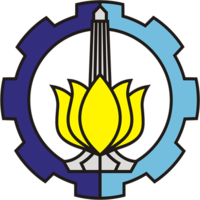The Role of Women in Community Development: Reenacting Digital Activism in Improving Education for All Children, Lesson Learned from Tulungagung and Semarang
Abstract
Women have a significant role in ensuring the continuity of teaching and learning activities in both the formal and non-formal sectors, particularly regarding digital literacy challenges in early childhood education (3-6 years old). Especially considering the increased need for digital skills during and after COVID-19. The potential for gadget addiction and abuse that leads to online-based violence encourages the important role of the community in aligning challenges as well as opportunities for digitalization of early childhood education. Aligned with SDGs number 4 concerning quality education. This research seeks for the red thread of the role of women as agents in the development of community-based early learning methods, especially the implementation of digital literacy. Primary data was taken from focus discussion group extraction, curriculum development, and joint monitoring-evaluation on digital literacy, which was held at MI Muhammadiyah Junjung, Tulungagung Regency and Komunitas Harapan on the Johar Market Riverside, Semarang. The concepts of Women in Development and Digital Literacy empowers women to contribute to development, cybersecurity, and children's rights. The results highlight structural issues like poverty and gender inequality as barriers to educational quality across regions, further emphasizing the need for women educators in designing digital literacy programs.
Keywords
Full Text:
PDFReferences
Asosiasi Penyelenggara Jasa Internet Indonesia. (2023, March). Survei APJII Pengguna Internet di Indonesia Tembus 215 Juta Orang. https://apjii.or.id/berita/d/survei-apjii-pengguna-internet-di-indonesia-tembus-215-juta-orang
BAPPENAS. (2007, February 5). LAW OF THE REPUBLIC OF INDONESIA NUMBER 17 OF 2007 ON LONG-TERM NATIONAL DEVELOPMENT PLAN OF 2005-2025. State Ministry of National Development Planning/. https://policy.asiapacificenergy.org/sites/default/files/LONG-TERM%20NATIONAL%20DEVELOPMENT%20PLAN%20OF%202005-2025%20%28EN%29.pdf
Denzin, N. K., & Lincoln, Y. (Eds.). (2017). The Sage Handbook of Qualitative Research (fifth ed). Sage Publication.
Komisi E DPRD Jateng. (2021). NASKAH AKADEMIK PENGARUSUTAMAAN GENDER PROVINSI JAWA TENGAH. Komisi E DPRD Jateng. https://jdih.jatengprov.go.id/produk_hukum/naskah_akademik/NA_Pengarusutamaan_Gender_Prov_Jawa_Tengah.pdf
Law, N., Torre, J., Wong, G., & UNESCO. (2018). A Global Framework of Reference on Digital Literacy Skills for Indicator 4.4.2. UNESCO Institute for Statistics. https://uis.unesco.org/sites/default/files/documents/ip51-global-framework-reference-digital-literacy-skills-2018-en.pdf
Livingstone, S. (2004). Media Literacy and the Challenge of New Information and Communication Technologies. The Communication Review, 7(1), Article 1. https://doi.org/10.1080/10714420490280152
Ogega, J., Douglas, Z., Nkonya, L., & Winter, E. (2023). World Vision’s Gender Equality and Social Inclusion Approach and Theory of Change (2nd Edition) (2nd Edition). World Vision. https://www.wvi.org/sites/default/files/2023-07/WV-GESI-Approach-Theory-of-Change-2nd-Edition-2023_0.pdf
Pemprov Jawa Tengah. (2022, April 18). Peraturan Daerah (Perda) Provinsi Jawa Tengah Nomor 2 Tahun 2022 tentang Pengarusutamaan Gender. Ditama Binbangkum - BPK. https://peraturan.bpk.go.id/Download/207583/perda_2_th_2022.pdf
Pemprov Jawa Timur. (2019b). PERATURAN DAERAH PROVINSI JAWA TIMUR NOMOR 9 TAHUN 2019 TENTANG PENGARUSUTAMAAN GENDER. Pemprov Jawa Timur. https://dokumjdih.jatimprov.go.id/upload/41480/Perda_No_9_Tahun_2019_tentang_Pengarusutamaan_Gend.pdf
Semarang Kota. (2023). Geografis dan Penduduk Kelurahan Kauman. Geografi Dan Penduduk. https://kauman.semarangkota.go.id/geografisdanpenduduk
Statista Search Department. (2023, January). Countries with the largest digital populations in the world as of January 2023 [Infographic]. https://www.statista.com/statistics/262966/number-of-internet-users-in-selected-countries/
Stein, A. (2022, April 13). Why intersectional feminism matters for development. OECD Development Matters: Gender Women and Girls, Social Contract. https://oecd-development-matters.org/2022/04/13/why-intersectional-feminism-matters-for-development/
Tamang, C. (2022). Gender Equality and Social Inclu- sion (GESI) as a critical praxis of In- tersectionality Understanding and manifestation of intersectionality in GESI frameworks of development organizations in Nepal [Centre for Development and the Environment (SUM) University of Oslo]. https://www.duo.uio.no/bitstream/handle/10852/95978/1/Christina_Tamang_Master_Thesis_SUM_2022.pdf
UNICEF. (2000, June). Defining Quality in Education. The International Working Group on Education, Florence. https://www.right-to-education.org/sites/right-to-education.org/files/resource-attachments/UNICEF_Defining_Quality_Education_2000.PDF
UNICEF. (2019). Digital Literacy for Children: Exploring Definitions and Frameworks. UNICEF.
DOI: http://dx.doi.org/10.12962%2Fj24433527.v17i2.20906
Refbacks
- There are currently no refbacks.
This work is licensed under a Creative Commons Attribution 4.0 International License.






